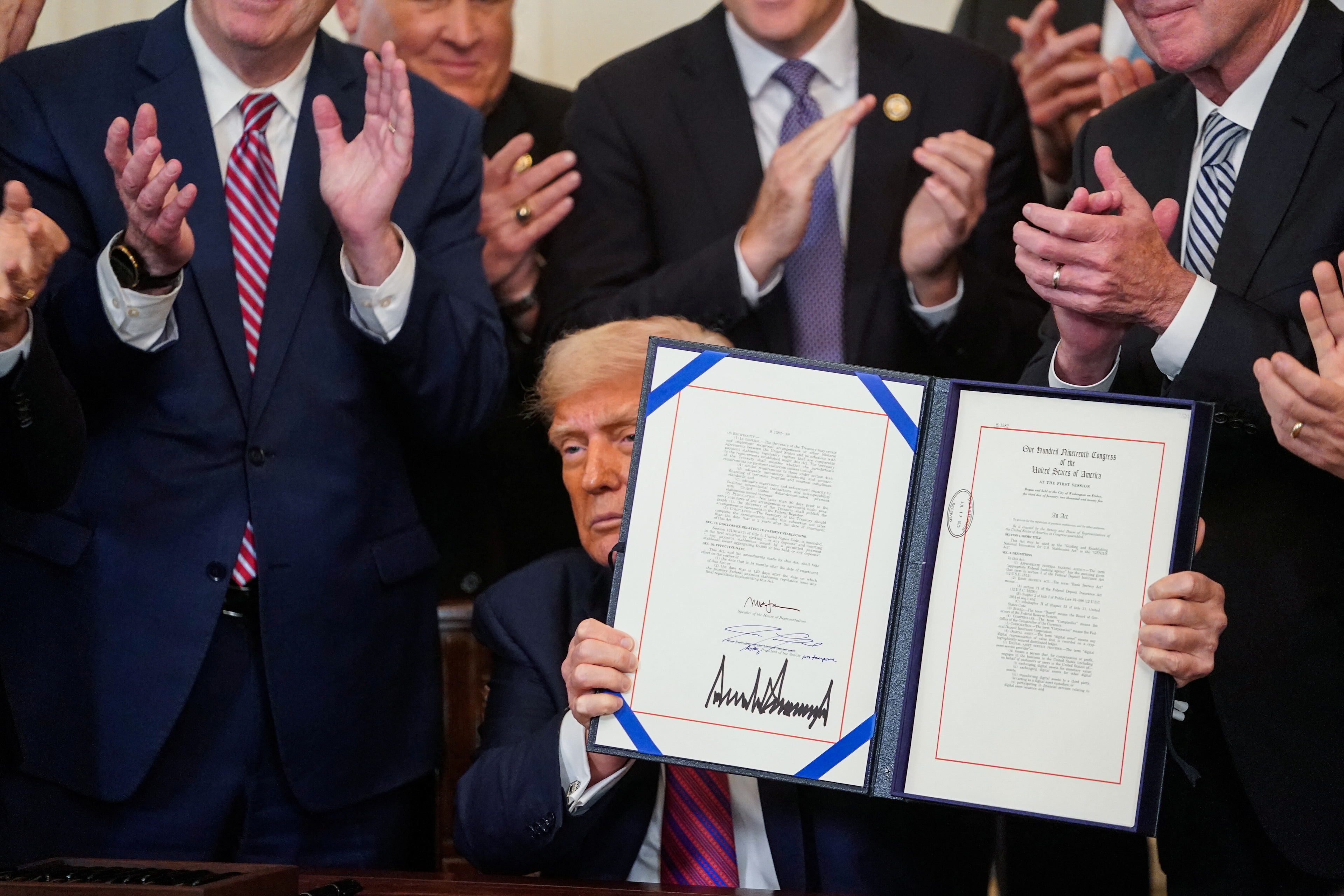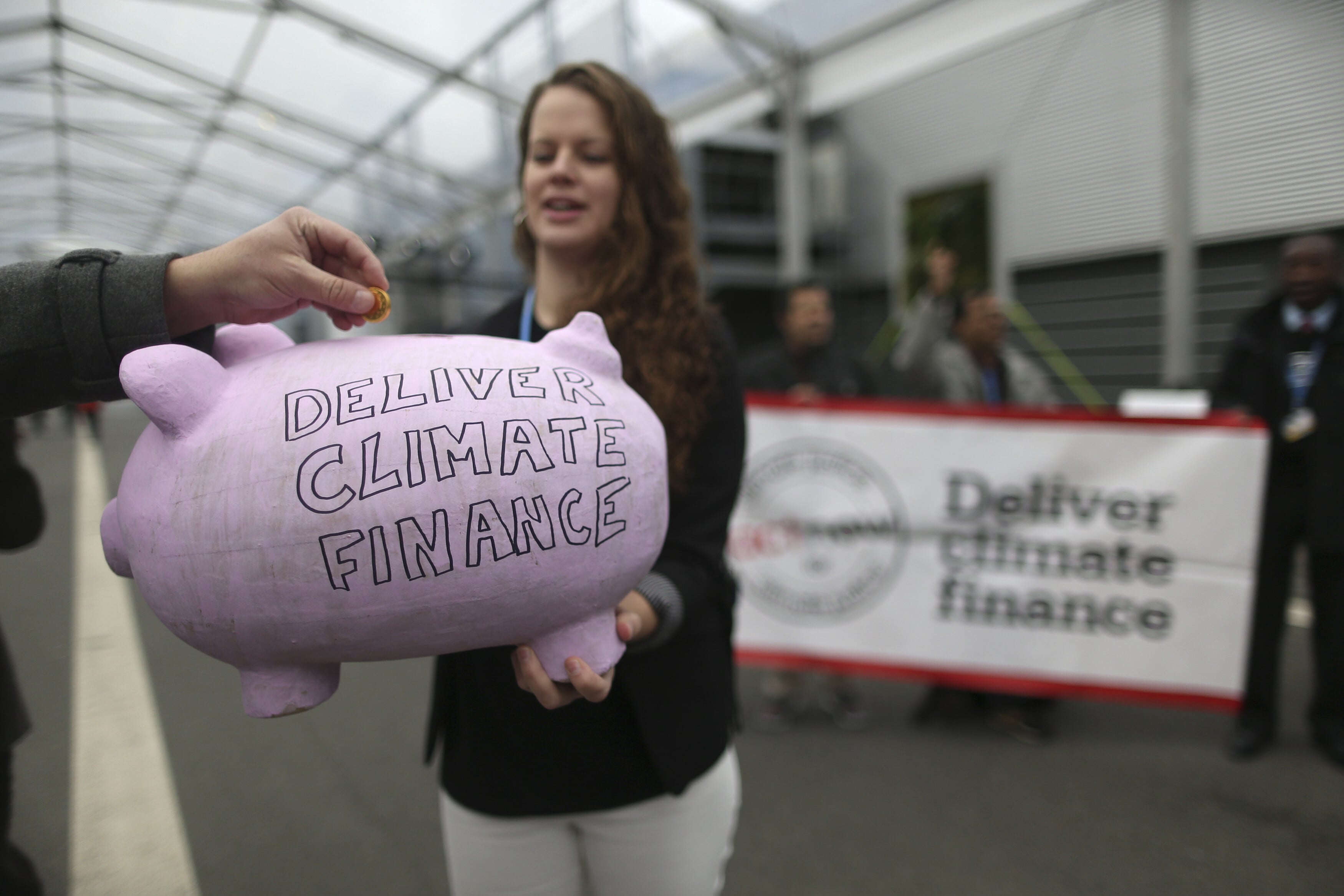These are the risks and opportunities of green finance

Banks must recognise the transition to a low-carbon economy as a promising business opportunity.
Image: REUTERS/Jean-Paul Pelissier
Stay up to date:
Financial and Monetary Systems
This article originally appeared in Handelsblatt and Les Echos.
The decision of the US administration to withdraw from the Paris Climate Agreement is a major roadblock for the fight against climate risks. But reactions have shown that governments across the globe are strongly committed to honouring the ambitious climate deal. So whatever the current short-term sentiment, we should not expect a turnaround. The transition to a low-carbon economy has already begun.
The role of banks and other financial institutions in this process is currently heavily underestimated; the adjustment processes will affect the financial sector, too. The adjustment towards a lower-carbon economy could prompt a reassessment of the value of a large range of assets once the real costs of the transition become apparent. As a result, companies, investors and lenders active in the sectors affected should expect returns to plummet. We have already seen examples of sharp devaluations. As pointed out by Mark Carney, the chair of the Financial Stability Board, the market capitalisation of the top four US coal producers has fallen by well over 90% over the last six years.
Dealing with these risks must be high on the agenda in the financial sector. But many banks and institutional investors have yet to develop the capacity to identify and quantify the credit and market risks that will arise when environmental aspects are factored into the valuation of their assets. This valuation is a challenge for banks and institutional investors for a number of reasons. First, the developments we are facing stretch over the long term and their outcome is uncertain; second, historical data are of little use to predict them; and, third, the whole process will be heavily influenced by policy decisions, which involves further uncertainty.
But policymakers and supervisors also have to do their part. In acknowledgment of this, the G20 added green finance to its agenda as early as 2015. And under this year’s German presidency, it will continue going forward in two important areas.
Only a few days ago, an industry-led taskforce convened by the Financial Stability Board issued recommendations for voluntary, consistent and comparable climate-related financial risk disclosures by corporates. In parallel, the G20 is studying options to support the efforts of the financial sector to develop methods and tools for analysing risks arising from financial firms’ environmental and climate exposures. Another focus is to improve the accessibility and relevance of publicly available environmental data for the financial sector as a complement to the work on corporate disclosure.
Actors in the financial markets should, however, go one step further and look to the opportunities that this process presents. The transition to a low-carbon economy will require a great deal of financing. Its costs are measured in trillions, not billions.
One way of mobilising the funds necessary could be “green bonds”, which are debt instruments specifically dedicated to financing green projects. There is a lot of potential here: currently, less than 1% of total bond issuance is made up of labelled green bonds and less than 1% of the holdings of global institutional investors are specific green infrastructure assets. But the market nearly doubled in volume last year. Early this year, a jumbo sovereign green bond was issued successfully. And financial centres in London, Paris and Frankfurt are taking steps to position themselves as global green financial hubs.
Yet banks could also play a greater role. So far, only 5-10% of bank loans are “green” based on data from the few countries where national definitions of green loans are available. Financial institutions must recognise the upcoming transition to a low-carbon economy as a promising long-term business opportunity. Given the fact that many banks are desperately searching for new business opportunities, we are convinced that it will be worthwhile for management boards to put more effort into exploring green finance.
Financial institutions, policymakers and supervisors need to recognise that the transition to a greener, low-carbon economy will not be stopped. Waiting is clearly not an option.
Don't miss any update on this topic
Create a free account and access your personalized content collection with our latest publications and analyses.
License and Republishing
World Economic Forum articles may be republished in accordance with the Creative Commons Attribution-NonCommercial-NoDerivatives 4.0 International Public License, and in accordance with our Terms of Use.
The views expressed in this article are those of the author alone and not the World Economic Forum.
Related topics:
Forum Stories newsletter
Bringing you weekly curated insights and analysis on the global issues that matter.
More on Financial and Monetary SystemsSee all
Sandra Waliczek and Harry Yeung
July 29, 2025
Pranidhi Sawhney and Adam Skali
July 29, 2025
David Carlin and Sourajit Aiyer
July 28, 2025
Veronica Frisancho
July 22, 2025
Jesus Serrano
July 14, 2025





